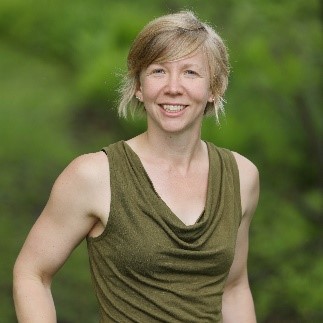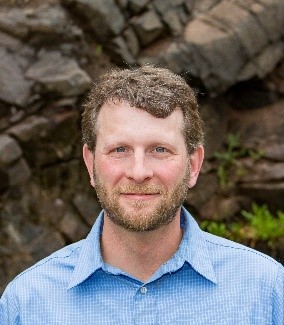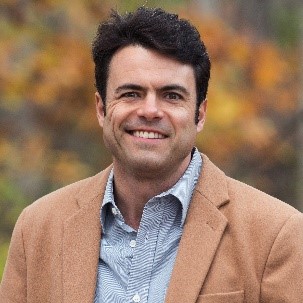December 8, 2021
Presented By Nefeli Bompoti & Marisa Chysochoou, TAB program, UConn Civil & Environmental Engineering
The webinar will provide an overview of the UConn TAB’s Technical Assistance program for activities supported in Spring 2022. UConn TAB is offering to provide assistance to New England municipalities at no cost for the Spring semester of 2022. The proposals will be supported through the University of Connecticut course Brownfield Redevelopment, which trains UConn students on all aspects of brownfields investigation, cleanup, and redevelopment. This webinar will outline examples of projects supported and details for submission.
November 17, 2021
Presented By Kristin Floberg & Charles Vidich, WestCOG
Following an explosion in scientific evidence pointing to the importance of riparian buffers as a means to reduce nonpoint source pollutants, on June 10, 2021 the Connecticut General Assembly enacted Public Act 21-29. This law expands the responsibility of zoning commissions in protecting the water quality of Long Island Sound to all 169 municipalities of the state. In expanding local authority – and responsibility – over coastal water quality, the law will require broader development and implementation of zoning strategies to control the discharge of a wide range of water pollutants – including “dead zone” causing nutrients such as nitrogen and phosphorus. This webinar will cover the history of past attempts to protect riparian corridors, the role riparian corridors play in reducing surface water pollution and hypoxia in Long Island Sound, review the range of riparian corridor protection strategies that have been adopted statewide, and provide model regulations for implementing Public Act 21-29.
July 1, 2021
Presented By Nefeli Bompoti & Marisa Chysochoou, TAB program, UConn Civil & Environmental Engineering
EJ SCREEN a mapping and screening tool developed by EPA to provide a nationally consistent data set and approach for combining environmental and demographic indicators. In this year’s EPA Brownfields Grant guidelines, it is suggested to utilize EJ SCREEN to help characterize target areas and identify threats to sensitive populations. In this webinar, the UConn Technical Assistance on Brownfields (TAB) team will provide a hands-on demonstration on how to use EJ SCREEN tool to develop your narrative proposal.
July 1, 2021
Presented By Dave Dickson and Amanada Ryan, UConn CLEAR and Extension
As we approach the 5th and final year of CT’s updated MS4 permit we’re offering a webinar to review the new tasks coming due, offer some guidance on what to expect next year, and address the most commonly confused MS4 concepts based on a review of Annual Reports. We’ll also share some MS4 news and updates and check in on how communities feel their MS4 work is going.
June 16, 2021
Presented By Ashley Helton, Professor, UConn Dept. of Natural Resources and the Environment and the Center for Environmental Sciences and Engineering
Past land use activities (or land use “legacies”) can be strong indicators of contemporary water quality; yet watershed management strategies often neglect the lag times associated with land change trajectories. In this seminar, I will describe types of land use legacies in New England, present some evidence for the effects of land use legacies on water quality, and summarize upcoming research focused understanding on how land use history and intensity may influence water quality (with a focus on nitrogen) in streams and rivers of the Long Island Sound (LIS) watershed.
May 26, 2021
Presented By Kim Bradley, UConn Extension Trails Program Coordinator
The State of Connecticut has a vast number of open space and outdoor recreational opportunities, however information for trail users can be inconsistent, inaccurate, and difficult to find. The Connecticut Trail Finder, currently in development through UConn Extension, will be a free, interactive mapping website designed to help Connecticut residents and visitors explore trail and outdoor recreation opportunities, trailside services, and events across the state. Connecticut Trail Finder will compile trail manager approved trails with the goals of becoming the primary trails data source for the State of Connecticut and connecting users with trail management organizations and resources. This webinar will provide an overview of the resource to trail users, exploring the current and developing features of the website, and provide information for trail and land managers on how you can add your trail systems to the Connecticut Trail Finder. The Connecticut Trail Finder is funded through generous support from the Department of Energy and Environmental Protection and the Department of Transportation.
May 19, 2021
Presented By Nicole Friedenfelds and Amy Cabaniss, Natural Resources Conservation Academy (NRCA), Dept. of Natural Resources and the Environment
Have a great idea for a conservation project in your community or land trust, but not sure you have the staff power, technical know-how, or energy to carry it out? Wouldn’t it be great to connect with local youth in that effort? Tune in to this webinar to learn how the UConn Natural Resources Conservation Academy (NRCA) is engaging high school students in wildlife monitoring, water quality, promoting pollinators, outdoor recreation, and other environmental projects in communities throughout Connecticut. NRCA faculty will share insights on ways to build capacity for your organization through youth engagement. Through this webinar, you’ll learn about tangible projects that can help address local environmental needs and hear directly from teen and adult participants about their experiences in UConn NRCA programs and the community actions they carried out.
April 28, 2021
Presented by Laura Brown, Community & Economic Development Educator, UConn Extension, Courtney Hendricson, Vice President of Partnerships, AdvanceCT, Kristen Gorski, Economic Development Coordinator, Town of West Hartford, and President, CT Economic Development Association (CEDAS)
Many communities struggle to find a comfortable balance between the desires of the business community, the desires of residents, and the requirements of existing zoning regulations and regulatory processes. In this session, the presenters will offer suggestions for finding this balance by exploring topics including: the role of economic development in the local land-use regulatory process; what companies are really looking for in a community; ensuring your community is ready for a desired development project; why and how to say no to a development proposal; and how to strike the right balance between zoning enforcement (which sometimes means saying no to business) while simultaneously encouraging the right kind of projects for your community. Attendees will learn about the Best Practices in Land Use and Economic Development Program, created by the Connecticut Economic Development Association and the Connecticut Chapter of the American Planning Association, and how to utilize the program as a tool for balancing economic development and planning.
April 21, 2021
Presented By Chet Arnold, UConn Extension & CLEAR and Qian Lei-Parent, UConn Extension & CLEAR
Land use planners, property owners, and watershed managers need all the help that they can get to reduce the impacts of nitrogen (N) pollution on waterways, particularly in coastal areas. CLEAR, URI and EPA have developed an online tool, N-Sink, that provides some of this help. N-Sink identifies areas within a watershed that are likely to contribute N to coastal waters, and other areas that are likely to remove N from the system before it gets to the coast. The tool now covers all of the coastal watersheds of Connecticut and Rhode Island. This 30-minute webinar will describe the workings behind the tool, demonstrate the new N-Sink web app, and initiate a discussion on ways that the information might be used.
March 24, 2021
Presented By Dave Dickson, UConn Extension and CLEAR
Nearly eight years ago, CLEAR’s NEMO program first launched an app to help homeowners, landscapers, developers, and municipalities properly site, size, install, and maintain a rain garden to help protect their water resources. The app has since expanded to include state-specific rain garden sizing and plant information for 25 states. Now, the app has received a new update that will allow it to work on ANY device with a web browser – PC, tablet, iPhone, or even an Android phone! This webinar will cover how the app works, how you can access it, and how you can use it for public outreach.
The goal of this four-part online speaker series is to engage a wide variety of community members to discuss and better understand climate change and its effects on coastal forests in northeastern U.S. Participants will be able to better understand new strategies to create more resilient forests. Because the speaker series is online, it is open to all, but may be of special interest to municipal officials, resource managers, Avalonia Land Conservancy members, tribal leaders, private forest landowners, and other local land conservancy organizations. It is also open to students and teachers at local schools and colleges. Because climate change is occurring at a faster pace than traditional stewardship methods allow, these talks open up new research-based ways of thinking about forest management and its relationship to Long Island Sound. For example, read how Connecticut Sea Grant and Avalonia Land Trust are preparing the forest for the future.
History of New England Forests and Climate Change
 by Maria Janowiak, PhD is researcher and deputy director of the Northern Institute of Applied Climate Science, an organization led by the USDA Forest Service. Maria coordinates the Climate Change Response Framework activities in New England.
by Maria Janowiak, PhD is researcher and deputy director of the Northern Institute of Applied Climate Science, an organization led by the USDA Forest Service. Maria coordinates the Climate Change Response Framework activities in New England.
This lecture will provide a view of New England coastal forests in from pre-colonial contact to present. This will lead to discussion about the current dilemma facing land stewards in coastal New England: How to preserve native species and natural habitats threatened by climate change in ways that are innovative, but aligned with the values of informed stewardship.
View Video
Slides
Forest Management for Carbon Sequestration and Climate Adaptation

by Dr. Todd Ontl, PhD is a Research Scientist and Climate Adaptation Specialist for the Northern Institute of Applied Climate Science and Michigan Tech University, and coordinates the Institute’s forest carbon management outreach projects.
This talk will introduce the fundamental ideas on how adapting forests to changing climate conditions supports forest carbon sequestration and storage. Dr. Ontl will outline principles of carbon stocks and cycling within forest ecosystems and the impacts of management actions through the lens of climate risk and vulnerability, and various approaches for enhancing the carbon sequestration capacity of coastal forests in the northeastern U.S. This presentation will provide examples of how forest managers are integrating goals of climate adaptation with targets for increasing the carbon mitigation capacity of their forests, and provide a look ahead to opportunities in the region to support landowners and land trusts interested in forest carbon management.
Forest Carbon Menu of Adaptation and Mitigation Strategies and Approaches
View Video
Slides
Experimenting with Climate-Adaptive Forestry Practices: Challenges and Opportunities
 by Christopher Riely, a conservationist and Licensed Forester who works on a wide range of projects in southern New England through his practice Sweet Birch Consulting, LLC. From 2008 to 2019, he worked for Providence Water on managing the watershed lands surrounding the Scituate Reservoir, which supplies drinking water for 600,000 people in Rhode Island.
by Christopher Riely, a conservationist and Licensed Forester who works on a wide range of projects in southern New England through his practice Sweet Birch Consulting, LLC. From 2008 to 2019, he worked for Providence Water on managing the watershed lands surrounding the Scituate Reservoir, which supplies drinking water for 600,000 people in Rhode Island.
Following a brief overview of general forest climate adaptation strategies, this talk will present one experimental project begun in Scituate, Rhode Island, in 2015, when Mr. Riely helped manage 13,000 acres of forestland buffering the reservoirs for Rhode Island’s largest water utility. Site work included planting both native tree seedlings and non-native species projected to be adapted to future climate conditions, such as shortleaf pine and sweetgum. To assess deer impacts on one site, half the seedlings were planted inside a large exclosure fence. While foresters monitor early results, the project has provided significant educational value through engaging public audiences and a professional community of practice.
View Video
Slides
Brave New Worlds for Trees: Assisted Migration and the Study of Hoffman Preserve
by Dr. Juliana Barrett is an Extension Educator and Coastal Habitat Specialist with Connecticut Sea Grant and UConn Extension
Dr. Juliana Barrett, Principal Investigator for the grant that funded this speaker series, will describe the history of the Hoffman Preserve in Stonington, CT, and climate projections for 2050. Now underway, she presents a progress report on the careful selection of trees and shrubs that may withstand climate change in coastal N.E. Her work is guided by new ideas of assisted migration, or how to introduce tree species that can lead to more resilient forests. This project will involve the community in tree planting in a local forest, but more importantly, introduce people to new ideas about how to select and nurture the right tree for the right spot, and at the right time.
CT Sea Grant, Avalonia project looks to prepare forest for the future
View Video
Slides
March 3, 2021
Presented By Tom Worthley, UConn Extension
As winter winds down, and you’re considering outdoor, low-risk activities, making a small batch of maple syrup at home with your family might be a fun and healthy choice. This webinar will provide all the essential information you’ll need to get started, from identifying which of your trees might be sugar maples, to tapping, boiling and finishing the sweet product for use on your favorite pancake recipe. Extension Forester Tom Worthley will take you through the process and share some tricks he has learned.
February 24, 2021
Presented By Emily Wilson, UConn Extension and CLEAR
Learn about how GIS is done in Connecticut, how we compare to our New England neighbors, and what might be done to make GIS operations more efficient and effective.
February 17, 2021
Presented By Sara Bronin, UConn Law School & Cary Chadwick, UConn CLEAR
In January, Desegregate CT, a coalition of over 60 organizations focused on land use and zoning reform, released its groundbreaking interactive map, the Connecticut Zoning Atlas. This first-in-the-nation planning tool allows the public to easily explore zoning regulations that govern housing in each of the state’s 2,618 zoning districts and two subdivision districts without having to sift through and decode thousands of pages of written code. This webinar will focus on one particular aspect of the Zoning Atlas: the areas within a half-mile of train stations and CT fastrak stations. It will start with a broad overview of Desegregate CT and its platform as it relates to TOD, and it will show how you can use the Atlas to assess how your community already permits TOD. The webinar will conclude with some information about the Desegregate CT’s TOD proposals and how they have worked in other states, including neighboring Massachusetts.
February 10, 2021
Presented By Peter Linderoth, Save the Sound
What is this map telling us? Join Peter Linderoth from Save the Sound as he discusses the latest release of the Long Island Sound Report Card. The Report Card grades the ecological health of the open waters of the Sound in addition to numerous embayments. Peter will present an overview of the water quality data sources, grading process, and then dive into the grades and general findings.